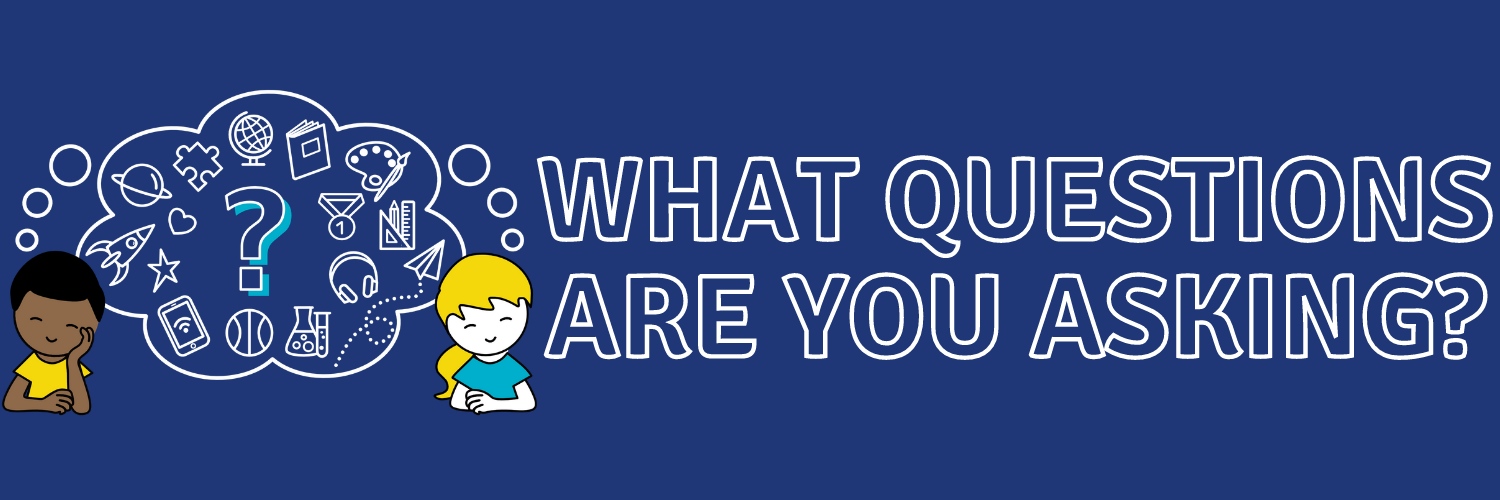An underpinning of the inquiry model is that learning is framed around a question. Whether a problem statement, a wondering, a curiosity or debate, questions shape the learning. At times the questions are proposed by the teacher. At times the questions are generated by the students. No matter who is asking, questions are at the heart of the inquiry classroom.
So how do we know what questions to ask? How do we know if what we have asked will frame the learning in a meaningful way? I’ve been thinking on these points as of late and wanted to spill some thinking here.
FIRST, it’s important that we actively teach the skill of questioning, that we are nurturing a culture of talk founded on safety and trust and that students are becoming, over time, more competent questioners. The questions they generate should reflect both closed and open-ended explorations. Students should be able to grapple with questions, unpack them, revise them and put them back together again. Students should understand how to categorize questions, find alignment and similarities and commonalities across questions, and how, once questions are organized, research pathways can be formed. Teachers, we can not expect these things to merely happen. We must plan to develop this skill, to coach and model this skill, and to actively engage our students in flexing this skill.
SECOND, it’s important that we intentionally plan the guiding questions that we will ask during learning to facilitate talk, support inquiry, and get us all, collectively and individually, to take on more ownership over learning. In my experience this is something that inquiry teachers do quite well: they plan for the co-design of learning by considering the questions they will ask that will create space for students to take on more agency over their learning. They anticipate how the questions they ask can create the conditions for students to take on more of the heavy lifting of learning. Over time, the more they plan and include these guiding questions in their unit and lesson design, the more adept they get at using guiding questions whilst being responsive within learning.
“What am I doing in class that my students should be doing for themselves? What skills and understandings do students need to take on more of the heavy lifting of learning? How can I create more calm in the classroom? How can I create the conditions for students to be more inquisitive and curious in their learning? What should I coach and model for my students? What should I hold up and speak to in class to create clarity and direction for students? How can I be more transparent and supportive in my practice? How can I ensure there is equity in learning? ”
THIRD, teachers ask reflective questions of themselves to actively inquire into their own inquiry teaching. What am I doing in class that my students should be doing for themselves? What skills and understandings do students need to take on more of the heavy lifting of learning? How can I create more calm in the classroom? How can I create the conditions for students to be more inquisitive and curious in their learning? What should I coach and model for my students? What should I hold up and speak to in class to create clarity and direction for students? How can I be more transparent and supportive in my practice? How can I ensure there is equity in learning? These are just a few questions I have been asking myself and using as discussion prompts with teams of teachers I am supporting this year. These questions guide our reflection, ground our goal setting and shape our direction. As we actively question our inquiry practice, we will have an impact on our students and their own inquiry learning. If teachers are inquirers we are more likely to observe students as inquirers and in turn, grow a culture of inquiry.
NOTE, I didn’t share any insight into questions about content or curriculum or topics. I have focused on the skill of questioning, the role of guiding questions to empower learners, and the power of reflective questions to shape the teacher’s learning and shape a culture of inquiry. Yes, there’s such a thing as the right questions. I believe this lens on questions will help create more dialogue as to what the right questions could be for you.


